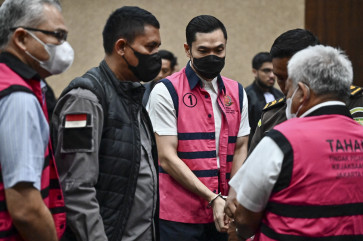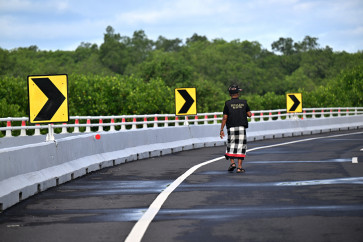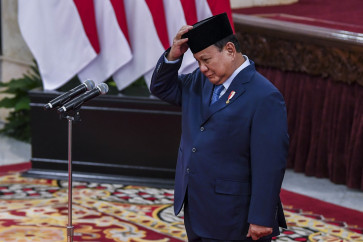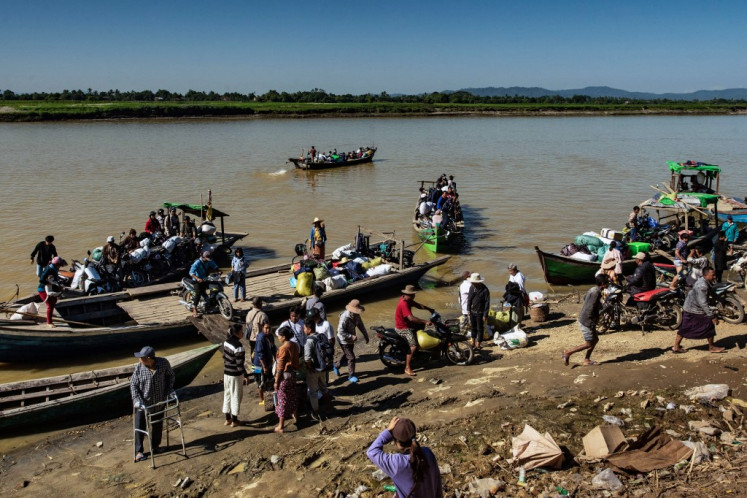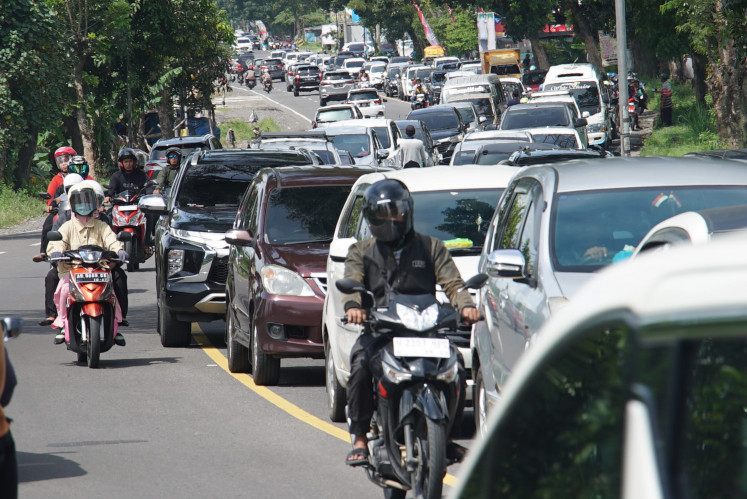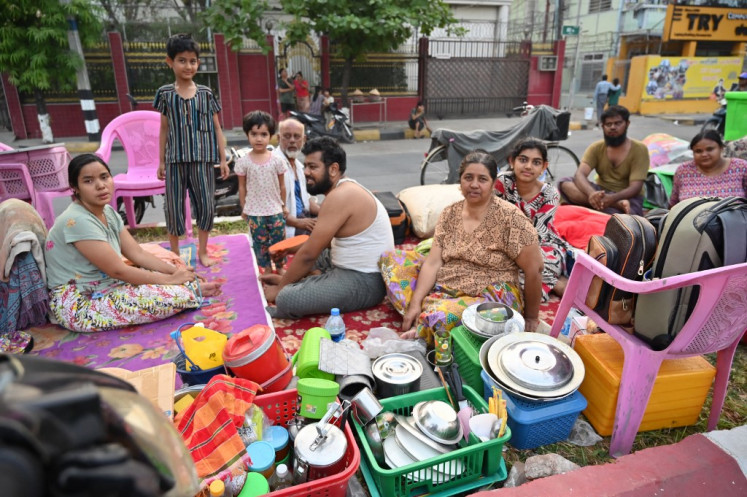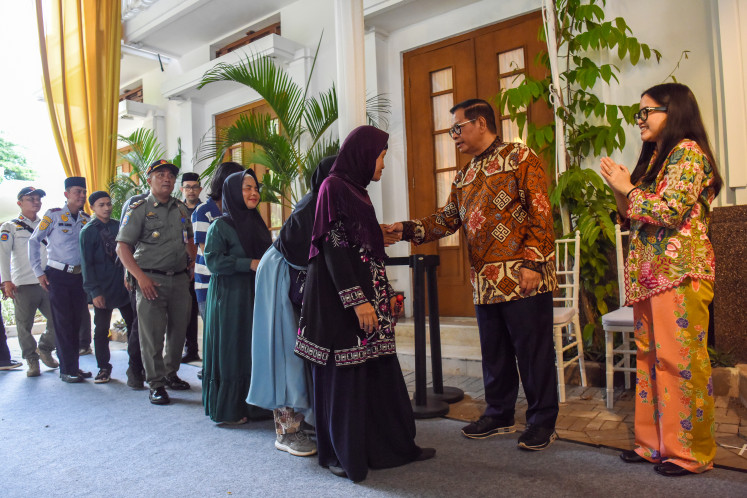Unmasking the realities of Myanmar’s fight for freedom
Myanmar’s crisis has reached unprecedented levels, marked by mass displacement, environmental devastation caused by militarization, widespread human trafficking through scam centers and the inhumane treatment of political prisoners.
Change text size
Gift Premium Articles
to Anyone
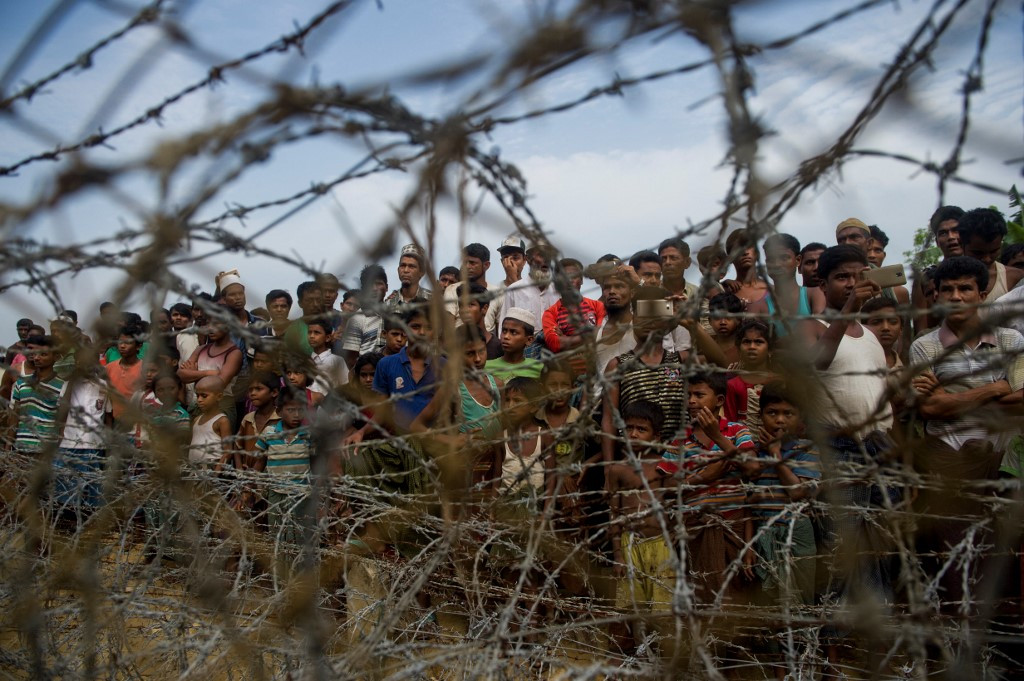 Rohingya refugees gather in the “no man's land“ behind Myanmar's border lined with barbed wire fences in Maungdaw district, Rakhine state bounded by Bangladesh on April 25, 2018. (AFP/Ye Aung Thu)
Rohingya refugees gather in the “no man's land“ behind Myanmar's border lined with barbed wire fences in Maungdaw district, Rakhine state bounded by Bangladesh on April 25, 2018. (AFP/Ye Aung Thu)
O
n March 22–23, the Thai Parliament hosted a pivotal seminar titled "Fostering Sustainable Peace and Security: Thailand and ASEAN’s Path toward Border Stability and Democracy". The event brought together policymakers, diplomats, human rights advocates and Myanmar experts to confront the deepening crisis in Myanmar and its far-reaching implications for regional stability.
The seminar served as a critical platform to expose these realities and strategize responses rooted in human rights and regional security and emphasized the urgency of adopting a coordinated, rights-based approach.
Unlike the 2024 seminar, which focused on broader regional issues, this year’s discussions directly addressed the junta’s atrocities, despite Myanmar’s military government formally objecting and pressuring Thailand to cancel the event. The seminar’s continuation underscored a fundamental tension: The pursuit of truth and justice versus the junta’s relentless efforts to suppress dissent.
Myanmar’s crisis has reached unprecedented levels, marked by mass displacement, environmental devastation caused by militarization, widespread human trafficking through scam centers and the inhumane treatment of political prisoners, including women and children. The decline in humanitarian assistance has further exacerbated suffering.
Furthermore, fear has become a defining aspect of daily life, with reports of forced conscription and recruitment leading to severe mental health crises, including increasing cases of suicide. The civilian population remains under siege, facing indiscriminate airstrikes, landmines, torture and sexual violence, including in detention settings.
Health concerns are mounting, with outbreaks of cholera, malaria and dengue spreading unchecked, while financial constraints and dwindling humanitarian aid have placed thousands of lives at risk. The Rohingya minority ethnic group continues to suffer from extreme poverty, forced displacement and a complete lack of access to food and medical care.
A new and particularly alarming development has been the military’s use of paramotors, ultralight, motorized paragliders that offer low-cost, highly maneuverable and nearly silent aerial attack capabilities. Since December, over 60 such incidents have been recorded. The military’s increasing reliance on such methods reflects not just its desperation but its utter disregard for civilian life.
Despite the junta’s relentless oppression, the people of Myanmar are actively building a federal democracy from the ground up. Unlike past movements centered around singular leadership, this revolution is marked by collaborative leadership and inclusive governance.
Communities are building governance structures, delivering essential services and protecting civilians, particularly in liberated areas in Myanmar. This bottom-up movement embraces collaborative leadership to demonstrate the people’s commitment to sustainable peace and coexistence.
The proposed federal model is founded on the principles of sovereignty, solidarity, subsidiarity and proportionality, bringing together diverse ethnic and political groups, including Karenni, Mon, Chin, Ta’ang and Bamar-majority areas.
Moreover, the Articles of Federal Transitional Arrangements (AFTA) provide a clear road map for establishing a Federal Transitional Authority responsible for overseeing fiscal policy, foreign relations, education, health and humanitarian coordination. An inclusive federal conference is planned to legitimize these structures, ensuring transparency and participatory decision-making.
Nevertheless, deep-seated tensions remain. While ethnic minorities are acknowledged in federal discussions, religious minorities are largely excluded, raising urgent concerns about representation and inclusivity. Without resolving these disparities, the promise of a truly democratic Myanmar will remain elusive.
One of the seminar’s most striking conclusions was that the junta’s war is fundamentally unwinnable. Its forces are stretched thin, hemorrhaging resources, and failing to maintain control over vast territories. Its increasing reliance on aerial bombardments and indiscriminate violence highlights its strategic failures rather than its strength.
Women are playing an essential role in this struggle. Drawing on insights from the ASEAN Parliamentarians for Human Rights (APHR) Roundtable Discussion on Women’s Role in the Peace Process in Myanmar and stakeholder consultations in Bangkok and Chiang Mai that were organized before the seminar, it is clear that gender-inclusive peacebuilding is not an option but a necessity. Women must not only be included in negotiations but must lead them. Their full participation in every stage of Myanmar’s political transformation is non-negotiable.
In support of sustained regional collaboration, the APHR will cohost a follow-up conference in July 2025 in Kuala Lumpur, in partnership with the chairman of the Foreign Affairs Committee of the Malaysian parliament. This initiative aims to strengthen regional dialogue and collective advocacy, reaffirming the APHR’s unwavering commitment to human rights, peace, and democracy in Southeast Asia.
The seminar also discussed the concern over the junta’s clandestine plan to construct a nuclear power plant with Russian support. The prospect of a nuclear-powered Myanmar under military rule is a dire threat to regional security and environmental sustainability. ASEAN must take an unequivocal stance against this reckless ambition and instead champion renewable energy solutions. The region cannot afford to ignore this looming crisis.
Meanwhile, ASEAN’s response to the Myanmar crisis remains weak, disjointed, and ineffective. The Five-Point Consensus, adopted in 2021, has failed to produce any tangible progress, further exposing the gap between ASEAN’s diplomatic rhetoric and the grim realities on the ground. By continuing to engage with the junta through hollow dialogues, ASEAN inadvertently legitimizes its rule.
ASEAN must sever all diplomatic engagement with the junta and refuse to recognize its fraudulent elections. As Tom Andrews, the United Nations special rapporteur on Myanmar, aptly stated, any vote conducted under the junta’s control will neither be free nor fair.
Allowing the crisis to fester without decisive intervention not only exacerbates regional instability but also undermines ASEAN’s claim to be a defender of peace and human rights. ASEAN must impose stronger political and economic isolation on the junta, cutting off financial lifelines that sustain its reign of terror.
Urgent action is needed. ASEAN and the international community must increase humanitarian aid to border areas and ensure that cross-border assistance reaches refugees and internally displaced persons. Support for community-based organizations delivering essential services must be prioritized.
Myanmar’s struggle for liberation demands moral clarity and political courage. The people of Myanmar have endured unimaginable suffering, yet they continue to resist with extraordinary resilience. They deserve more than hollow diplomatic statements.
***
The writer is the executive director of ASEAN Parliamentarians for Human Rights (APHR).


